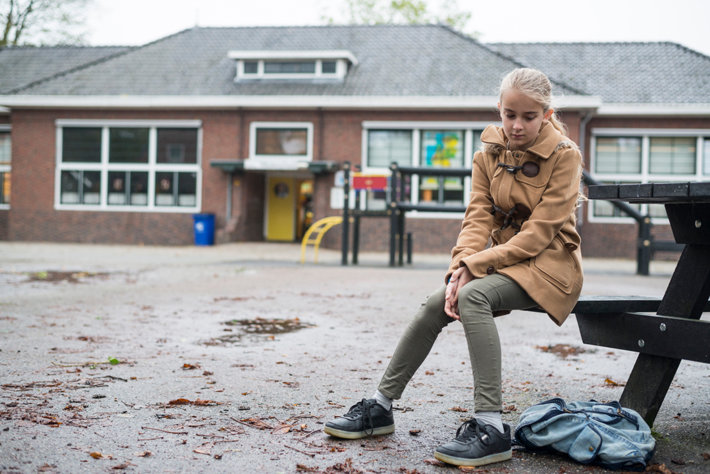Children of Alcohol Addicts Face Hardship

One of the rarely discussed harms of alcohol addiction is not the overwhelming harm that the addict faces, rather, the hardship that their children may face. Studies show that children who grow up with a parent who misuses alcohol are statistically much more likely to develop alcohol abuse problems later on in life. And though the difficulties faced by children of alcohol addicts are well documented in scholarly research and journals, such a critical issue does not always make its way into the public dialogue about alcohol addiction.
While it’s essential to remove barriers to treatment for the addict, it is equally important to have the conversation about what it’s like to be a child of an addict, to honestly examine the harm that can come from growing up in a household with an addicted parent. And most importantly, people who struggle with alcohol addiction need to have this information, as do their family members and loved ones. If alcohol addicts who are also parents became aware of the hardship they put their children through, it could incentivize them to seek treatment.
Addiction in the Home
A recent research paper documented the different types of harm that children may face who grow up in a home with an alcohol-addicted caregiver. Quoting the researchers, “Within the last 10 years, there has been an expansion of research on consequences that extend beyond the drinker. Although some studies show that harm because of strangers’ drinking may be more prevalent, harms caused by close relations, such as household family members and friends, may be more severe and distressing.”

Indeed, the researchers found that such young people face a range of risks and harm factors, including but not limited to:
- Higher risk of mental and behavioral health struggles.
- Higher rate of infant and child mortality.
- Higher likelihood of the child being convicted of a crime later on in life.
- More likely to have low academic achievement.
- More likely to experience abuse and neglect.
- Higher likelihood of experiencing out-of-home placement, e.g., foster care.
- Elevated risk for hospitalization, physical illness, and injury.
While young people who grow up in a household where one of their parents drinks alcohol to excess are at risk for multiple types of hardship like those listed above, perhaps the most critical factor is that children of alcohol addicts are much more likely to themselves become addicted to alcohol than children who grew up with sober parents.
Setting the Stage for Intergenerational Substance Abuse
Though scientists and researchers cannot nail down exactly what factors lead to the children of alcohol addicts being more likely to themselves struggle with alcohol abuse later on in life (the factors that cause this almost certainly differ, person to person), there is strong evidence that such is the case.
“Children of alcoholics are four times more likely than non-COAs [non-children of alcoholics] to develop alcoholism. Children’s perceptions of parental drinking quantity and circumstances appear to influence their own drinking frequency.”
The circumstances of growing up in a household of addiction has been shown to push young people towards alcohol. According to the National Association for Children of Alcoholics, “Children of alcoholics are four times more likely than non-COAs [non-children of alcoholics] to develop alcoholism. Children’s perceptions of parental drinking quantity and circumstances appear to influence their own drinking frequency. Parental alcoholism influences adolescent substance use through several different pathways including stress, negative affect, and decreased parental monitoring.”
Perhaps the greatest harm that an alcohol-misusing parent can have is that of raising a child who then goes on to struggle with alcohol abuse. This creates a trend of intergenerational substance abuse, which those individuals may then bring into their own children’s lives. The risk of one’s kids someday becoming addicted to alcohol can and should act as a strong, compelling factor for alcohol addicts to get help for their substance abuse problem as soon as possible.
Statistics and Data
The fact that children of alcohol-addicted parents are themselves more likely to develop alcohol abuse problems later on in life is just one potential hardship. There are many other factors to consider.
For one, regarding their safety, children of alcohol addicts spend more time seeking medical care at hospitals than children of non-alcohol-addict parents. Quoting one relevant study, “Children of alcoholics go to the hospital at a greater rate and stay longer than other children.”
Considering another factor, just the scope of the problem is a serious issue in and of itself. According to research done by the Children of Alcoholics Foundation (the same body of work cited in the previous paragraph), about seven million children live with a parent who struggles with alcohol addiction. That equates to about 10% of American youth. The Substance Abuse and Mental Health Services Administration ranks the problem as even more widespread than that, indicating that about 8.7 million (one in eight) children live with an addicted parent.
Yet another issue to consider is that painful childhood experiences involving alcohol can create long-term problems for children. The National Association for the Children of Alcoholics report that children of alcohol-addicted parents are more likely to suffer from depression and anxiety, are more likely to struggle in school, and are more likely to have physical and mental health problems than children of non-alcohol-abusing parents. Children of alcohol-abusing parents tend to score lower on school tests, and they may display difficulties with abstraction and conceptual reasoning.
“More than 6,000 first graders across four U.S. communities
(as many as 1–5 percent of first-grade children)
have fetal alcohol spectrum disorders.”
Another harm is that of Fetal Alcohol Syndrome, an adverse health condition in which a baby is born to a mother who was using alcohol while pregnant. According to the National Institute on Alcohol Abuse and Alcoholism: “More than 6,000 first graders across four U.S. communities (as many as 1–5 percent of first-grade children) have fetal alcohol spectrum disorders.”
Adult Children are at Risk, Too
To return to an issue mentioned earlier, of the many different experiences and challenges that children of alcohol addicts experience, perhaps the most important issue to further examine is that such children are exponentially more likely to misuse alcohol later on in life.
This is the intergenerational aspect of alcohol addiction that perpetuates the vicious cycle. And to that point, this is why the discussion around the children of alcohol addicts must not be constrained to young children or even just to children who still live at home with their parents. Anyone who grew up in a household that was rife with alcohol addiction faces this risk. If they are currently misusing alcohol, they must get help at a drug and alcohol treatment center as soon as possible. If they aren’t, but their parent still is, they must do everything they can to get that parent into a treatment center as soon as possible.
Get Help, Protect Children, and Don’t Perpetuate the Cycle

The harmful circumstances that children of alcohol addicts face can be painful indeed. There can be traumatic experiences that a child experiences that may create long-term problems, possibly to the extent where that child goes on to misuse alcohol as their own version of a coping mechanism. That’s why alcohol addiction treatment is key. Alcohol addiction treatment can halt the vicious cycle of alcohol abuse that extends not just through one’s own life but potentially into their progeny as well.
If you, your parent, your child, or someone you know is addicted to alcohol, please make sure that person gets help as soon as possible. Do everything you can to break the cycle, to create real and positive change that lasts for a lifetime. Qualified, residential alcohol addiction treatment offers a clear pathway out of addiction and into a better life.
Sources:
- https://www.jsad.com/doi/full/10.15288/jsad.2021.82.445
- http://www.nacoa.net/impfacts.htm
- https://www.ojp.gov/pdffiles1/Photocopy/127710NCJRS.pdf
- https://www.niaaa.nih.gov/publications/brochures-and-fact-sheets/alcohol-facts-and-statistics
- https://www.samhsa.gov/data/sites/default/files/report_3223/ShortReport-3223.html


